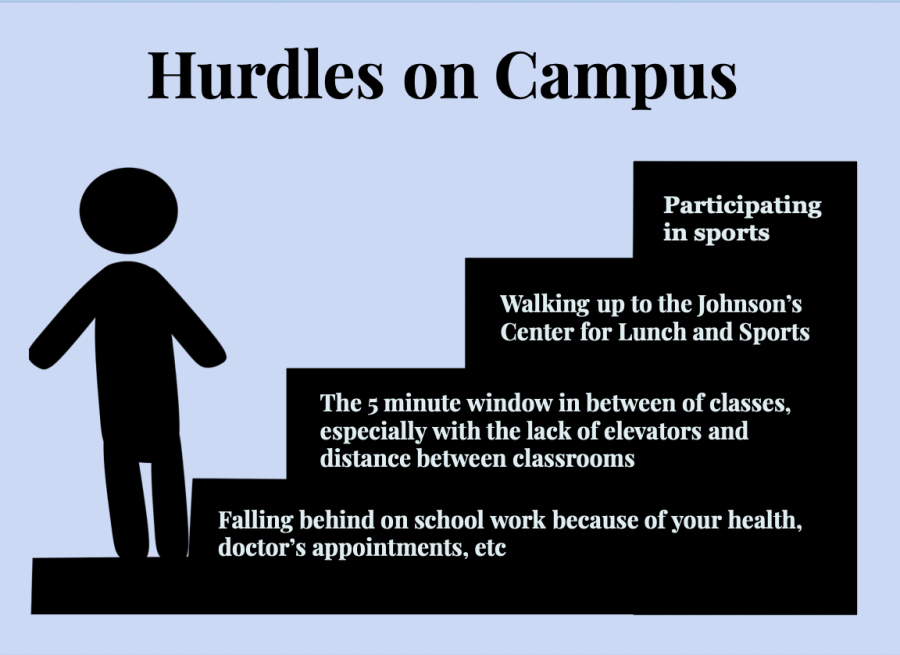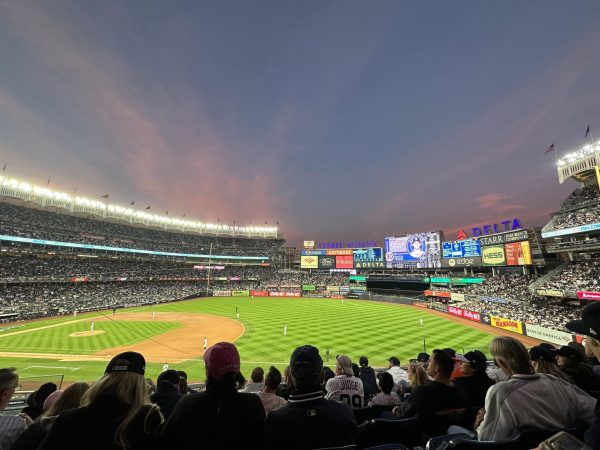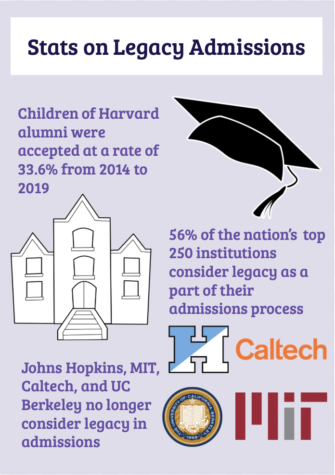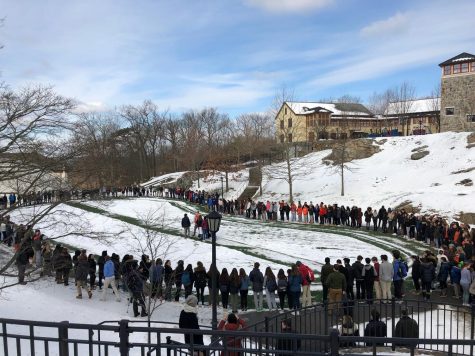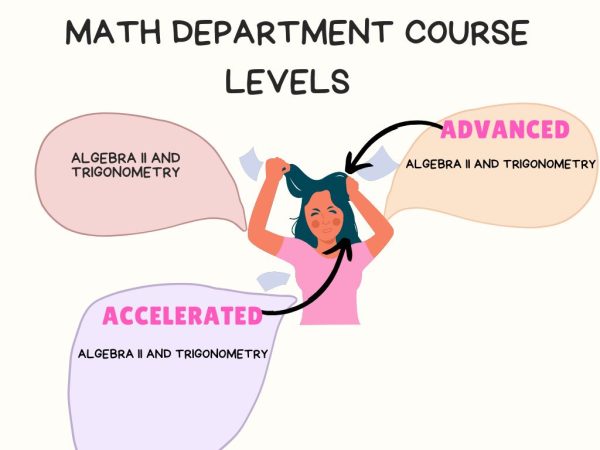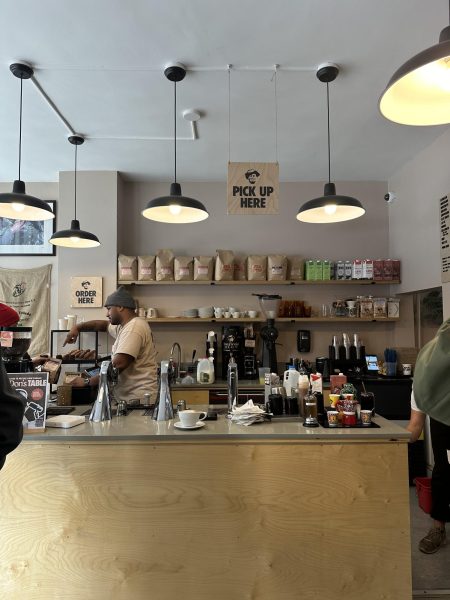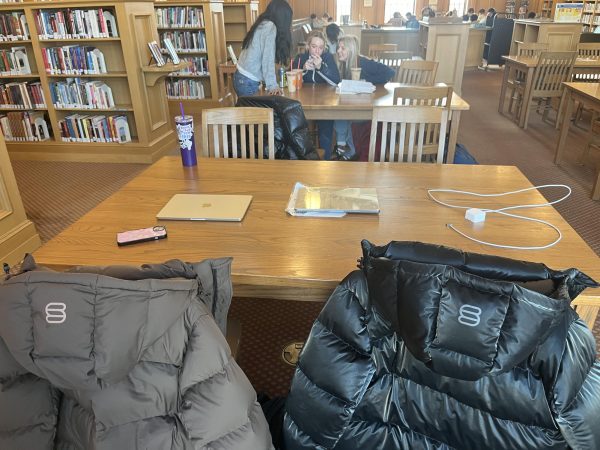Inaccessibility on the Hilltop
As part of my college search, I have the extra task of gauging how accessible each college campus is. Due to some unfortunate surgical errors, a simple procedure on my foot has turned into a more permanent disability. It has left me with bad chronic nerve pain in that foot but now additionally in my legs, hips, and other foot. This includes numbness, tingling, random burning sensations, and general sensitivity, as well as the need to wear a walking boot every day to avoid placing pressure on the damaged nerve (alongside other devices you may not see).
I sometimes have to miss school to see doctors only available during weekdays, go to physical therapy weekly, figure out how to still exercise and be health-conscious, and try home remedies daily too. It is up to me to talk to the accessibility directors of each school to ensure I would be able to navigate the campus easily enough (hilly versus flat, easy access to elevators, bikeable, and driveable in case of snow), schedule my classes to ensure I am not placed under too much stress to induce excess physical symptoms, get housing accommodations, and be able to come home to the primary podiatrist I’ve been seeing for 3 years now.
During this process, I came across an article called “Accessibility at Tufts: For students with physical disabilities, the Hill is far from an ideal campus,” by the Tufts Daily News, and I realized I could write an article with the same exact title, and it would directly apply to Hackley’s Hilltop.
Our campus is noticeably inaccessible. The buildings are old, full of stairs, and spread out. There’s one elevator in Saperstein (that I can’t use due to the 5-minute window I have between classes). Even if teachers are understanding of me missing the first few minutes of class, I would be missing material or the beginning of the assessment. Going to class from Saperstein to Goodhue is a trek in itself, even for those who are able-bodied. Boarding is on the top floor of Raymond and there is no way to get up to my dorm besides using the stairs.
I stayed online for the 2020-2021 school year while recovering from surgery so I could avoid the extra pain involved in navigating the endless stairs while in a boot and using crutches. There’s no space or way a wheelchair-bound person could navigate any part of the school. The narrow walkways between seats in classrooms don’t allow for any large mobility device to get in or out. Though I understand Raymond’s problems given the age, the newest building, the Walter C. Johnson Center, has the largest issues that I would say are self-explanatory.
Hackley also doesn’t have an Americans with Disabilities (ADA) office or anyone paid specifically to work with disabled students. Though many college’s ADA offices are not as good as they could be, Hackley’s lack of one is noticeable. When trying to get accommodations, my family had to contact Upper School Director Andy King directly. While he was understanding, it shouldn’t fall on him as he doesn’t specialize in these types of cases, nor does he have the time to work one on one as an accessibility director would. Not only would someone like this be beneficial for students like me, it would also help kids with shorter-term sports injuries.
These are all issues that cannot be fixed overnight or without a lot of money, so I have had to come to terms with them. Nonetheless, I still feel it is important to mention the campus to make sure future buildings are accessible, given the starting construction of the new Arts Facility. However, I find the other sides of the issues are the ones not automatically apparent—they lie within the community itself. There are many social issues that have been talked about in brevity (Black@Hackley, Harrassment@Hackley), yet I have never heard the school administration or the community address disability issues. I don’t blame the school for this as I find it to be a wide-scale societal issue, but for a school that prides itself in being inclusive and diverse, I would hope that Hackley does better than the majority.
As a result, I have firsthand dealt with microaggressions. One classmate “joked” they did not believe I needed a boot and compared my pain to their own saying “their injury was worse.” I was shocked and hurt to hear these things coming from a Hackley student. Rather than using our shared experience as a chance to understand each other better, they turned it into a competition. My pain is something only I can feel, and I shouldn’t have to “prove” it to others either. Someone else complained “how inconvenient wearing a boot for two weeks was” to me. Others simply do not realize the scope of how difficult it is living with a disability, no matter how much I try to tell them.
These “small” comments build up and make me feel alienated and often invalidated. A lot of teachers immediately assume my state is a short-term issue as well, given they haven’t had to deal with many (if any) disabled students. Being asked when things will get better makes for quite an awkward conversation. Most other students’ personal issues aren’t brought up in public, but mine is. I would say that overall teachers do the best they can, but having the proper etiquette for ability conversations incorporated into professional development day would make things even smoother.
This is not something only I have dealt with. While talking to my dean, she mentioned a former student, Philip Bonano ‘19, who frequently met with her to talk about his own struggles. Philip lives with rheumatoid arthritis (RA), has frequent migraines, and had a service dog with him during his time at Hackley. He mentioned many of the same issues I have experienced: the lack of an ADA office, the campus itself, and bullying (though to a much greater extent than I have dealt with). Moreover, he brought up issues I hadn’t consciously considered before.
Hackley is a sports-oriented school. Many of the students here participate in at least one sport if not multiple. Fall Sting is one of the most popular school events. Students with disabilities aren’t able to participate as an athlete, and it’s nearly impossible for me to be a spectator as well; the trek to the Johnson Center is difficult for me, and I also cannot stand for extended periods of time. The sports culture just contributes to the alienating feeling. People are often confused about why I am exempt, some even call me “lucky.”
Aside from sports, most of the “fun” social activities are not things Philip nor I could participate in. For junior fun day last year, I was already in so much pain just from walking to King Field, I couldn’t participate in any activities aside from tie-dye, and so ended up spending the day watching my friends enjoy water balloon tossing. This isn’t a non-recurring theme; other examples of this include scavenger hunts, field day, and field trips such as the Sophomore First Friday trip to Tea Town. People often forget the physical aspect of living with disabilities, not to mention the psychological part.
Due to the lack of awareness in general, even the friends who really try to understand me, struggle a lot. Philip stated it well:
“I think my friends tried their best, but it was a really hard situation for me and often I was removed from them systematically to the point where it became super difficult for us to maintain connections.”
Lastly, Philip brought up attendance—not just for missing school for doctor’s appointments. For me personally, sometimes the pain is so bad that it’s physically impossible to focus on anything else, and all you can and should do is rest. Just missing a day of school for sick days is notoriously difficult, resulting in many Hackley students choosing to go to school while sick rather than staying home. For people who have to prioritize their health, the choice between suffering (more) to avoid not missing valuable material becomes even harder. Either way, you’re left in a precarious position.
When I asked Philip what Hackley could do better in terms of accessibility, he simply stated “literally everything.” More specifically, “They need someone who manages accommodations, an adaptive physical education program, a non-offensive health program, an accessible campus, and better policies pertaining to student attendance.”
The goal of this article is not to make our school seem irredeemable. In fact, the goal is quite the opposite. My hope is that by publishing this in a place where all community members can read about my experiences, there will be increased awareness of how students and adults should act on the Hilltop. I believe it is the lack of exposure to disabled people and their issues that lead to the ableist environment occurring. I myself wasn’t aware of these issues until I experienced them firsthand, and just talking to Philip made me cognizant of other ones. I want to make it easier for future students who may be physically disabled by hopefully seeing long-term fixes to both the physical and social side of the Hilltop.
Hackley’s mission statement states that “Hackley challenges students to grow in character, scholarship, and accomplishment, to offer unreserved effort, and to learn from the varying perspectives and backgrounds in our community and the world,” and this is a great opportunity to do just that.

